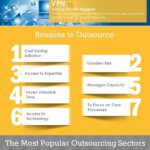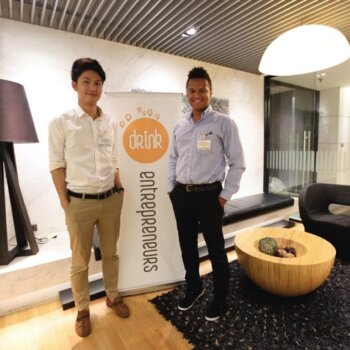Silicon Valley — the real one in California, that is — is hot, and it may be overheating the San Francisco Bay Area. Property prices are soaring as the Valley’s seemingly insatiable appetite for tech talent is drawing in the best and the brightest. But the downside to all this is that the techo scene may be facing a social backlash from the community, so much so that solutions are now being explored around how the tech industry might step up efforts to give back to the community. But Silicon Valley insiders, for their part, have also criticised the government for not doing enough to address the social issues caused by the increasing wealth disparity in the area. Stepping back from this raging debate it is quite easy to see that opportunity exists to exploit this simmering malaise that could potentially stall the boom in the Bay Area.
Thomas Clayton, CEO of Bubbly writes in a TheNextWeb.com article how southeast Asia may offer a brilliant alternative to Silicon Valley…
One part of the world that I highly recommend entrepreneurs seriously consider relocating to is Southeast Asia. It is quickly becoming one of the best places to grow a startup in today’s ecosystem.
I made the decision to move my Silicon Valley-based startup to Singapore several years ago, and the network here and the opportunity in Southeast Asia has grown exponentially in the past few years alone.
Clayton cited Singapore (of course) as the country offering the best package to would-be startups in the region. But, overall, the legendary Asian work ethic is also seen to be a big plus. And combined with an equally legendary boom-boom nightlife scene, southeast Asia can potentially be tops.
There is also the minor detail of operating cost. In this area, being at the bottom is good, and Asia is pretty much bang-on lowest buck for bang…
I’m on the board of one of the top app companies in Thailand (No. 1 in its category in the App Store), which has 25 employees and is burning less than $30,000 per month. The company has been working for nearly three years on less than $700,000 in angel funding! I see the same thing all of the time across the Philippines, Vietnam, Indonesia — burn rates are abysmally low here.
The Philippines as a host to hi-tech startups leaves a lot to be desired, however. The relatively high costs of energy and Internet access compared to similar economies in the region as well as its decrepit physical infrastructure puts it at a huge disadvantage. Philippine Senator Bam Aquino’s Senate Bill 2217, the proposed “Go Negosyo” Law, despite being touted as long-overdue “pro-startup legislation” is rather inward-looking, geared primarily towards encouraging players in the country’s vast underground local economy to go legit and not exactly one that seeks to put the Philippines squarely in theglobal scramble to attract tech investment…
[Aquino] pointed out that a large part of the economy is being sustained by the “underground economy” (the vendors, sari-sari store owners, et al.) and by the remittances of overseas Filipino workers. Of every one million Filipinos who enter the labor market, about 240,000 find jobs here and another 200,000 go abroad to work, he said. The rest go to the underground economy, and they should be taught how to be successful small businessmen.
Seemingly beyond Aquino’s range of vision is an immense pool of capital out there looking for viable ventures to park itself. Adam Bender of Techworld Australia writes about how southeast Asia’s attractiveness as an investment destination will make securing funding for startups increasingly easier. But Bender also quotes Vinod Nair, founder of Singapore startup Catapult Ventures who cites a critical weakness in the Singapore market that favours emerging markets like the Philippines’…
Nair said a challenge for startups in Singapore is hiring help. Hiring is almost as expensive as it is in Australia, and the talent pool in Singapore is as small as the country, he said. In addition, the government has recently made it harder to secure work visas for foreign workers, he said.
HotelQuickly moved its headquarters to Thailand in part because hiring is inexpensive and the cost of living is low, said the hotel booking startup’s founder, Benjamin Forgan. The location is still very central in the region, he said.
Hardless stressed that it’s easy to set up a business in Southeast Asia, saying it often only takes three to four days in Singapore. Bangkok, Manila and Jakarta are similarly welcoming to startups, he said.
That’s a goldmine of opportunity Filipinos can tap as wealthy Singapore increasingly becomes a victim of its own success. What the Philippines needs to be able to eat Singapore’s lunch are more aggressive, outward-looking, and visionary initiatives and a strong drive to succeed at world-class levels. Perhaps Senator Aquino’s Go Negosyo bill may be a first step to that. But Filipinos need to be more ambitious and think global rather than local. Only with that kind of ambition can real social and political will emerge to change fundamental problems that hinder even local entrepreneurship, like the country’s infamously slow and cumbersome business registration process.
It would, indeed be a tragedy of epic proportions if the Philippines, which possesses the more hard-to-replicate social edge needed to attract tech investment than its regional competitors (English-language proficiency and a relatively more Westernised society), fails in this aspect. The thriving outsourcing industry is, by itself, a testament to this bigger potential it might miss out on.
Filipinos need to pull their fingers out of their asses and join the bigger world. Tricycle and jeepney drivers, sari-sari store and carinderia operators,taho and balut vendors, and wash-your-car boys may benefit from quaint legislation like Go Negosyo. But to make it big Filipinos need to overcome their renowned Heritage of Smallness and start learning how to think big.
written by GetRealPhilippines Blog




























